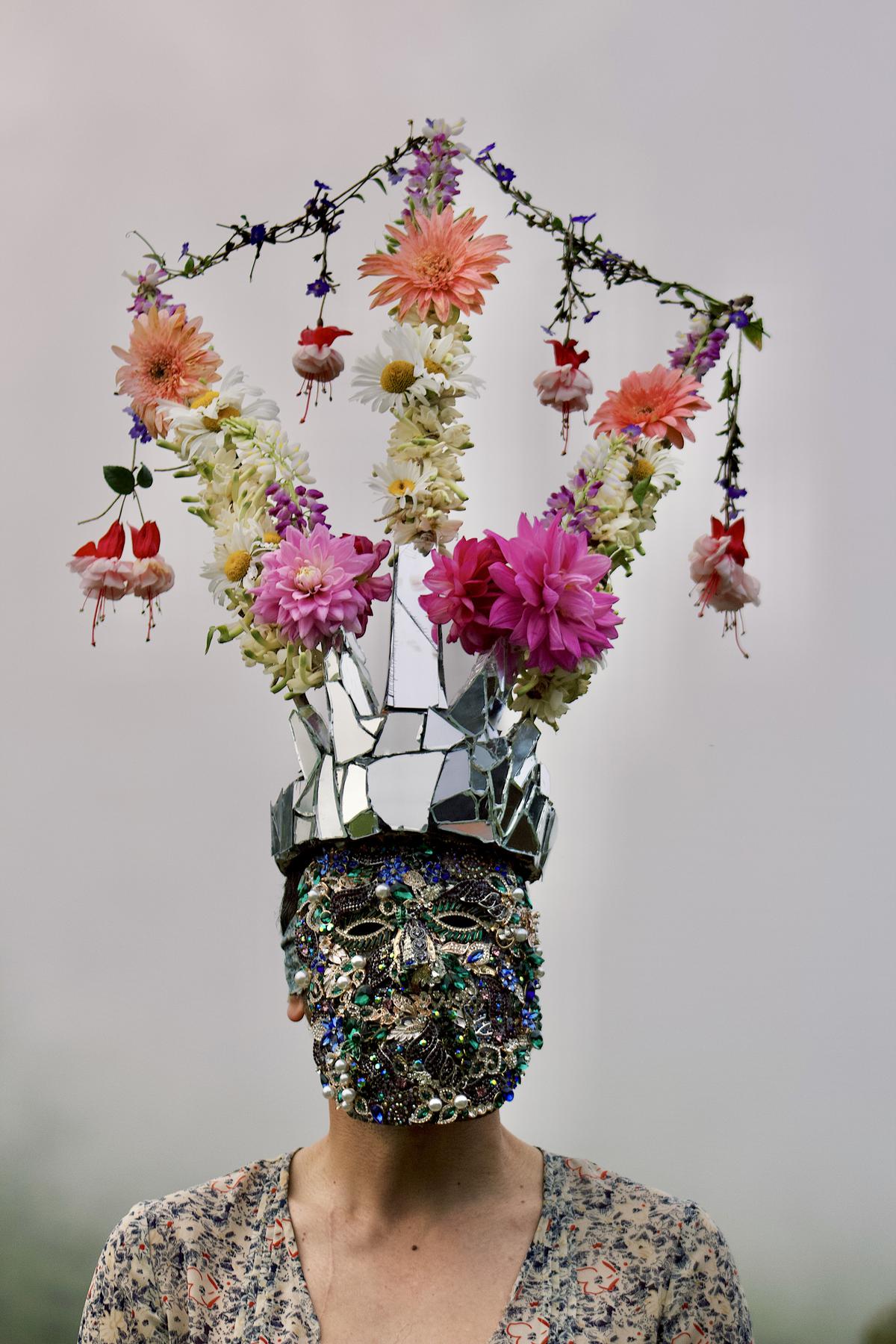The mask-making process for Mike started off very impulsively. and very soon it became an extension of itself, and a way to communicate with the world
The mask-making process for Mike started off very impulsively. and very soon it became an extension of itself, and a way to communicate with the world
Glass pieces, feathers, gems, delicate leaves and flowers. These are the objects that American artist and photographer Mike Sullivan, 28, uses to tell his stories with the help of masks and headpieces.
For Mike, these are not just objects of beauty, but a safe space for the wearer. “People are incredibly vulnerable when we’re creating an image together. Masks and crowns help them feel an inner sense of liberation and self-worth,” he says. Mike at the start of the year toured India, and the three weeks he spent between Kerala, Goa and Karnataka became an immediate creative abode.
He explored local flower markets, jewelery shops and collaborated with artists including Goa-based photographer Preetika Menon. “I made so much more than I expected and I’m so grateful for how open people were,” he says.
Experiments in Bangalore | photo credit: Mike Sullivan
It was his training in theater at Ithaca College, New York, followed by a semester at the Ithaca College London Center, that led to his keen interest in mask making. “For the Shakespeare/Grecian section of the semester, we had to make and perform our own masks, which was the first step in my journey as a mask maker.”
free expression
London became his playground for experimenting with his strange identities and gender expression. “I was of legal age to enter queer space for the first time, and the first mask I made and wore in public was in London. I was meeting people in the community, wearing heels, playing with makeup, experimenting with drag culture. Drag is a means for people to express themselves, and a crown can be another tool to help bring a person to that place of free expression. ,
The mask-making process for Mike started off very impulsively. And very soon it became an extension of itself, and a way of communicating with the world around it.
Nature has always been a leitmotif in the often delicate pieces of Mike, who grew up along the river, with swamps and woods all around. “I go hiking with friends, forage for wasp nests and make monster faces with dead flowers and crab legs.”

Mike Sullivan’s Van in Kerala | photo credit: Mike Sullivan
The stigma surrounding the grotesque expression inspired him to include nature. “Because nature is a gentle, universal language accessible to all. I had political differences with loved ones but I didn’t want to write them down. I wanted to make my quirky expression clear to them, despite my different ideologies. So I started using nature and flowers as a way to destroy homosexuality.”
Life events propelled him along his artistic journey. “My practice deepened in Provincetown” [Massachusetts]Where you are seen and celebrated. People are engaged in my work and I understand their perception about them.”
The pandemic and its isolation also inspired Mike to deepen his practice. “Pre-pandemic, I was able to use the crown and collaborate with others more regularly. But with social distancing becoming the norm, the focus was brought back to masks. My parents helped photograph me while I was wearing the pieces. Mike also found his old jewelery box during the lockdown, and started wearing the pieces and using them in his mask. “The ornaments add a layer of embellishment and storytelling. I also use vintage clothing because it opens up different interpretations for the image.”
Mike currently works with cardboard, foil, found objects and versatile materials that make the piece less rigid; But he would eventually like to create more sculptural works of art. “I would love to see my work in galleries, museums, and even movies. But basically, I want it to be a means for people to express themselves consciously and safely. For people to own themselves.” It is important to break free from constraints and embrace creativity.”
The author runs The Alipore Post and starts Chit Exchange, a PenPal project to help people connect during the pandemic.